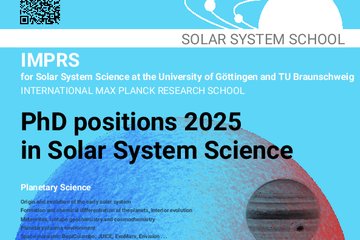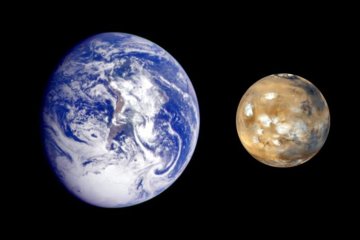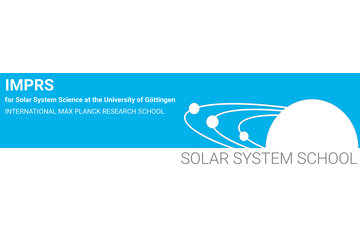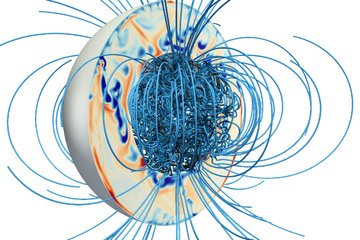All genres
1.
Journal Article
The EXOTIME project: signals in the O–C diagrams of the rapidly pulsating subdwarfs DW Lyn, V1636 Ori, QQ Vir, and V541 Hya. Astronomy and Astrophysics 638, A108 (2020)
2.
Journal Article
High-resolution spectroscopy and spectropolarimetry of the total lunar eclipse January 2019. Astronomy and Astrophysics 635, A156 (2020)
3.
Journal Article
Transmission spectroscopy of the hot Jupiter TrES-3 b: Disproof of an overly large Rayleigh-like feature. Astronomy and Astrophysics 608, A26 (2017)
4.
Talk
Phantastische Welten und wie sie zu finden sind. Max Planck geht zur Schule, Theodor-Heuss-Gymnasium und Felix-Klein-Gymnasium Göttingen, Göttingen (2021)
5.
Talk
The stellar pulsation timing method to detect sub-stellar companions. Virtual Annual Meeting of the Astronomische Gesellschaft 2021
, Online (2021)
6.
Talk
The EXOTIME project: Using the stellar pulsation timing method to detect sub-stellar companions. Virtual Annual Meeting of the Astronomische Gesellschaft 2020
(2020)
7.
Talk
Leben auf Exoplaneten. Max-Planck-Tag: Max Planck geht zur Schule im Theodor-Heuss-Gymnasium Göttingen, Göttingen, Germany (2018)
8.
Talk
Leben auf Exoplaneten. Max-Planck-Tag: Max Planck geht zur Schule in der Bonifatiusschule II Göttingen, Göttingen, Germany (2018)
9.
Talk
Leben auf Exoplaneten. Sternfreunde im FEZ e.V., Berlin, Online (2018)
10.
Talk
Detektionsmethoden für Exoplaneten. Astronomisches Sommerlager 2018, Heubach, Germany (2018)
11.
Talk
The stellar pulsation timing method to detect substellar companions. Rocks & Stars II Conference, Göttingen, Germany (2017)
12.
Talk
The stellar pulsation timing method to detect substellar companions. Annual Meeting of the Astronomische Gesellschaft 2017 , Splinter HotStars, Göttingen, Germany (2017)
13.
Poster
Detecting sub-stellar companions using the stellar pulsation timing method. PLATO Mission Conference 2021, Online (2021)
14.
Poster
The stellar pulsation timing method to detect substellar companions. Planets Days Workshop, IAU General Assembly 2018, Vienna, Austria (2018)
15.
Poster
The stellar pulsation timing detection method for substellar companions. The PLATO Mission Conference 2017: Exoplanetary systems in the PLATO era, Warwick, UK (2017)
16.
Poster
The stellar pulsation timing method to detect substellar companions. 2nd Advanced School on Exoplanetary Science, Vietri sul Mare, Italy (2017)
17.
Poster
The stellar pulsation timing detection method for substellar companions. Planetary Systems Beyond The Main Sequence II, Technion, Haifa, Israel (2017)
18.
Thesis - PhD
Timing of stellar pulsations to search for sub-stellar companions beyond the main sequence. Dissertation, 126 pp. (2020)











